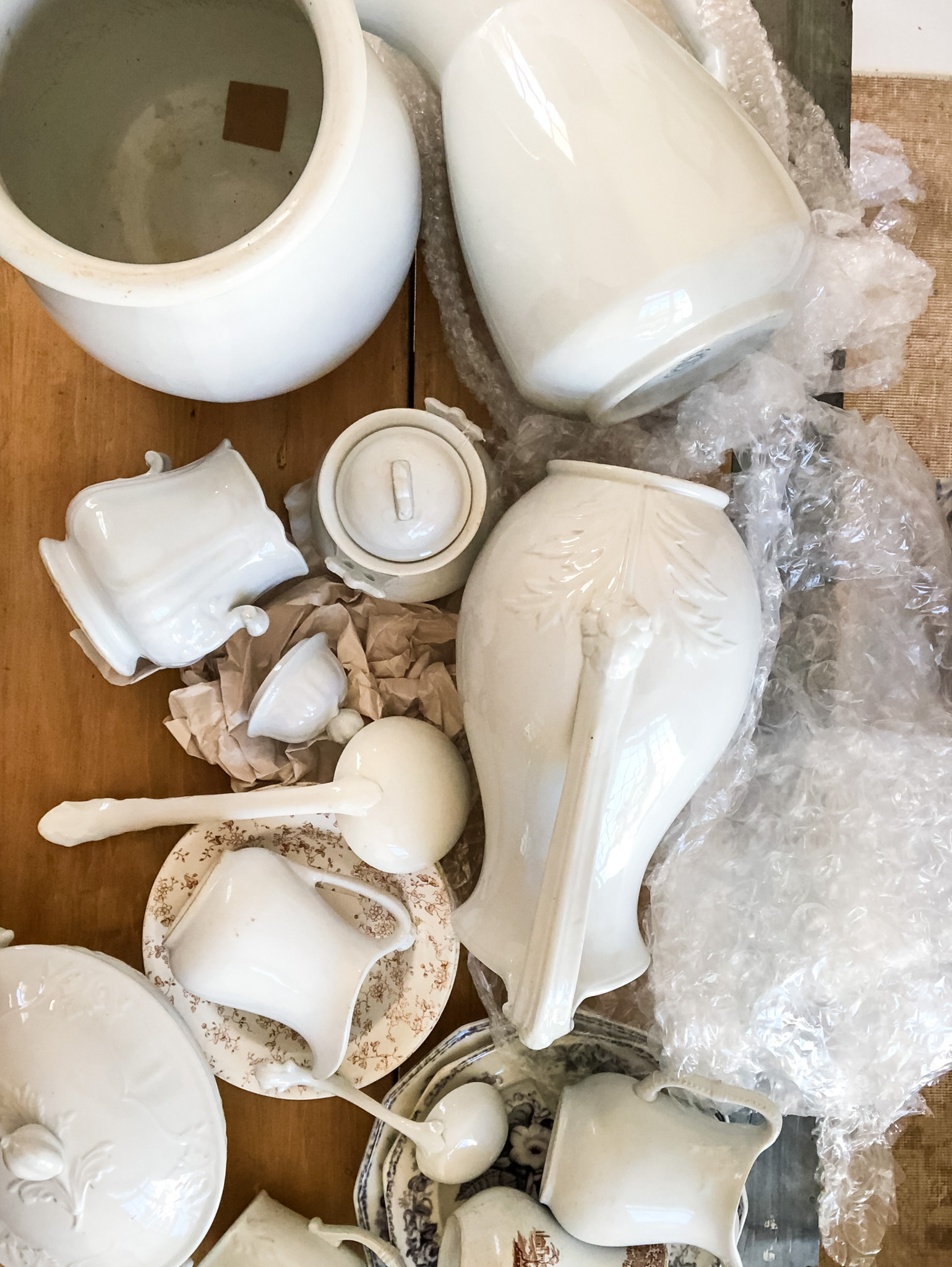One piece of ironstone that I believe could function in a home of almost any design style is an ironstone jardinière. The simple design, paired with the neutral white color, is plain enough to mix perfectly with a traditional and formal home, a cozy and relaxed home, and even a modern and sleek home. They make perfect centerpieces for an entry table or round dining table, and they can bring quite an impact to a vignette on a sofa table, countertop, or dresser. I have collected several over the years, and I use mine to hold both dry and fresh flowers.
[Affiliate links are used in this post. As an affiliate for a program (including being an Amazon Associate), I get a small commission (earn money) from qualifying purchases made through the included links, at no additional cost to you.]

Welcome back to my first blog series ever — An Ironstone Unboxing of my Old House Bins! Today, we will check out the contents of the fourth bin I opened. If you missed the first post and all of the details on this series, you can check that out at Ombre Stained Ironstone Pitcher.
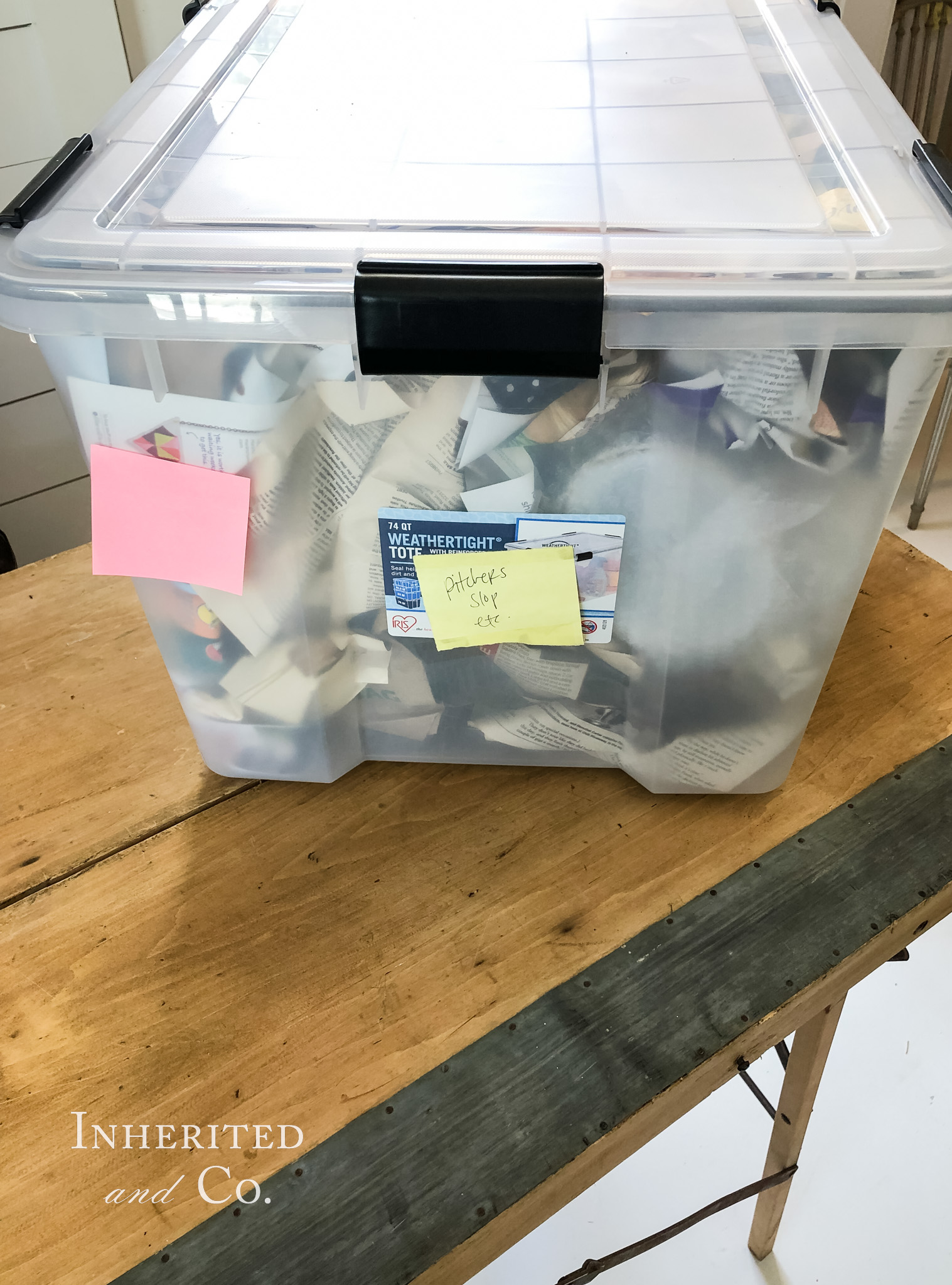
These are my favorite bins to move breakables in! They are made of hard plastic that holds its form when hot, and the lids have extra secure latches surrounding the perimeter of the bin.
41 quart bin | 62 quart bin | 74 quart bin
2 Ladles & an Ironstone Jardinière Box
This fourth box contained sixteen pieces of antique ironstone, including five pitchers, one tureen, two sugar bowls, two ladles, and one jardinière. There were also five pieces of mulberry and brown transferware in this box. None of the white ironstone pieces were stained. Four of the sixteen total pieces were unmarked. Of the twelve items with markings, only one was American while the others were English.

Ironstone Pitchers
This bin contained several ironstone pitchers—two ewers and three smaller ones. The ewers were both English ironstone. The one with the bud at its handle tag and leaves running to its foot is made my “J.W. Pankhurst,” while the one with the soft scalloped rim is by “J. & G. Meakin.”

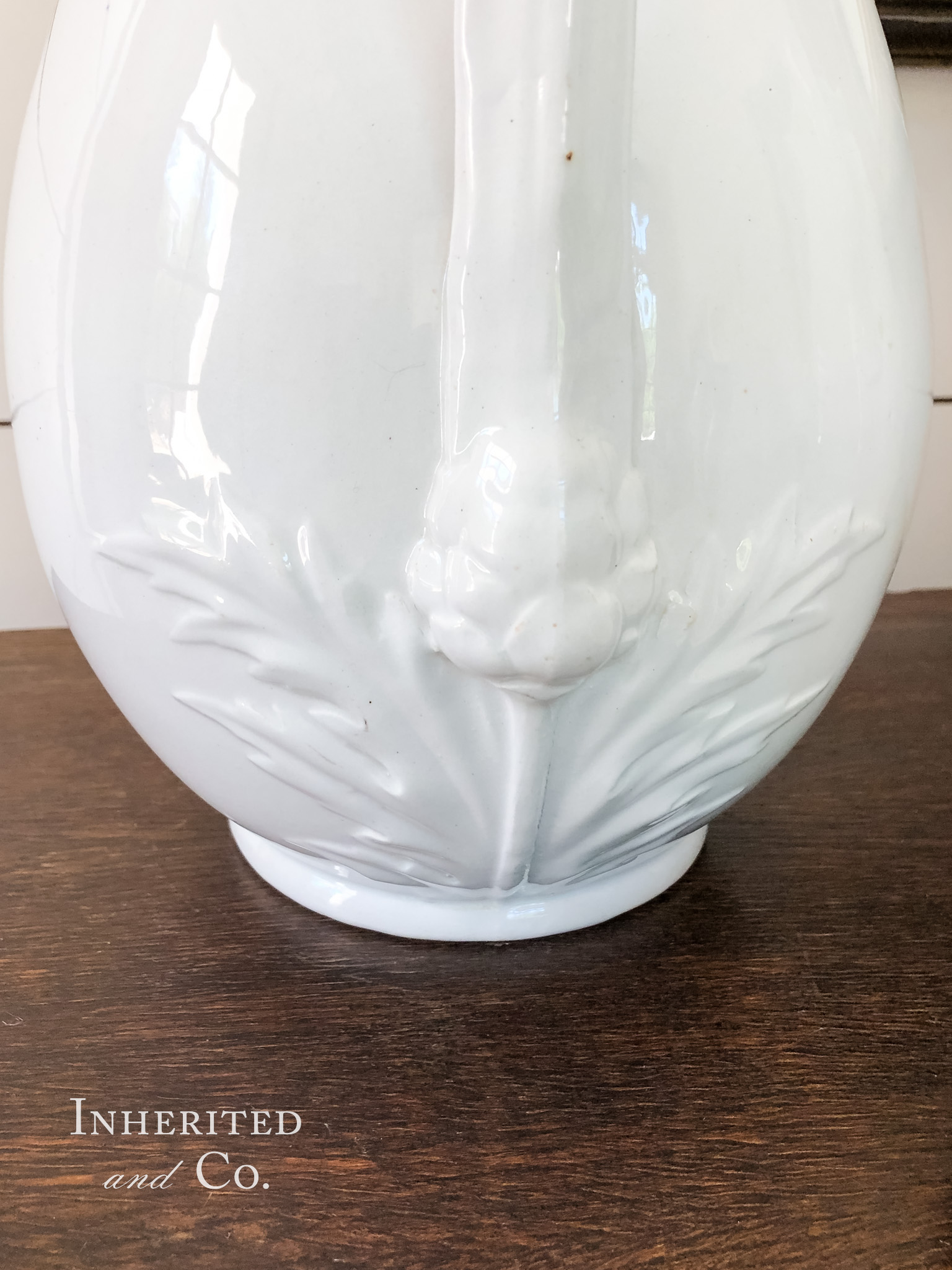
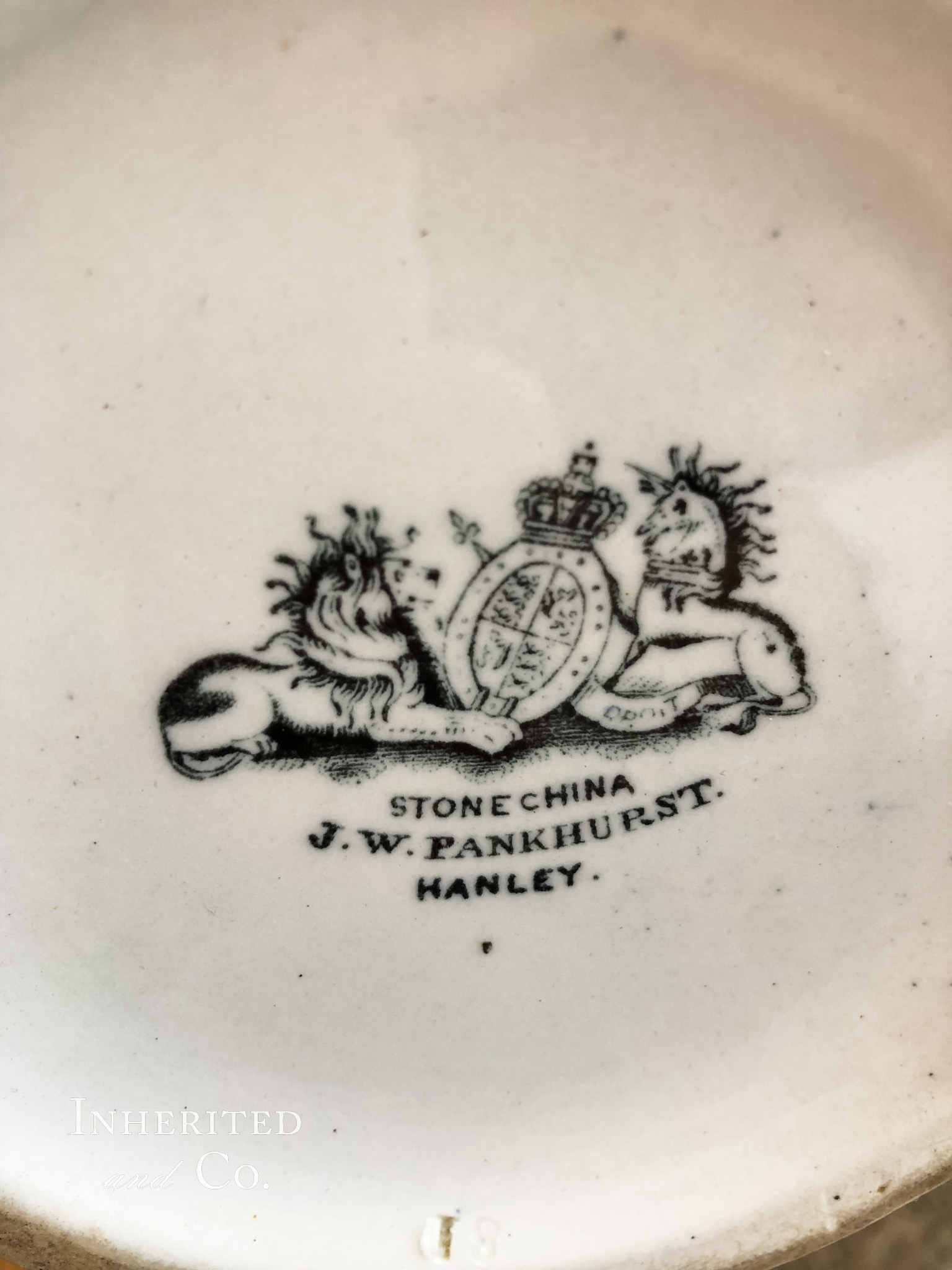

The three smaller pitchers were about five inches, give or take, in height. One was a plainer shape coming in at 5.5” tall. Another was 5.25” tall and made by “J. & G. Meakin.” It is the pitcher with the floral detail and dotted handle. The remaining pitcher is by “J. & G. Meakin.” and stands just under six inches tall.
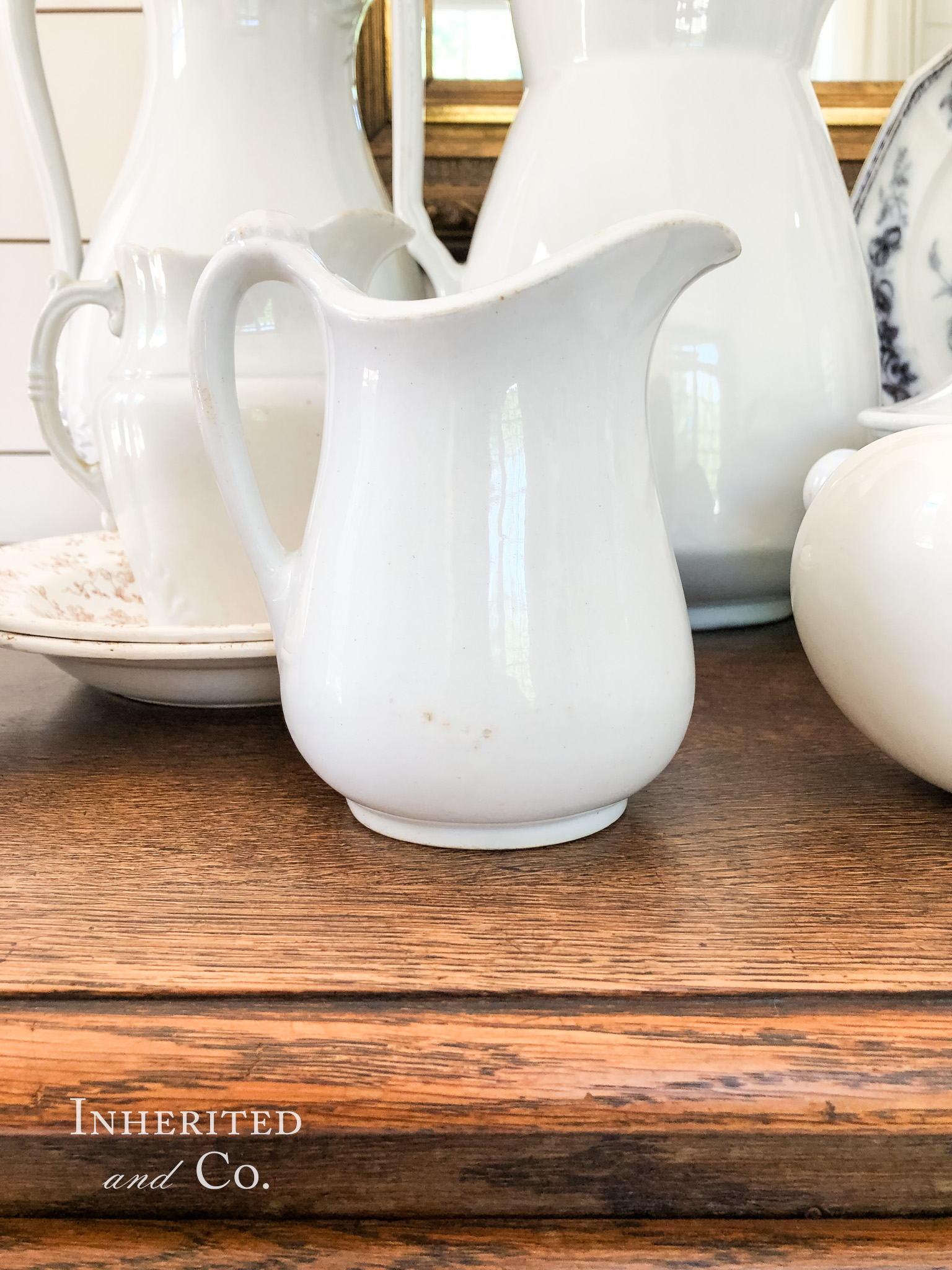
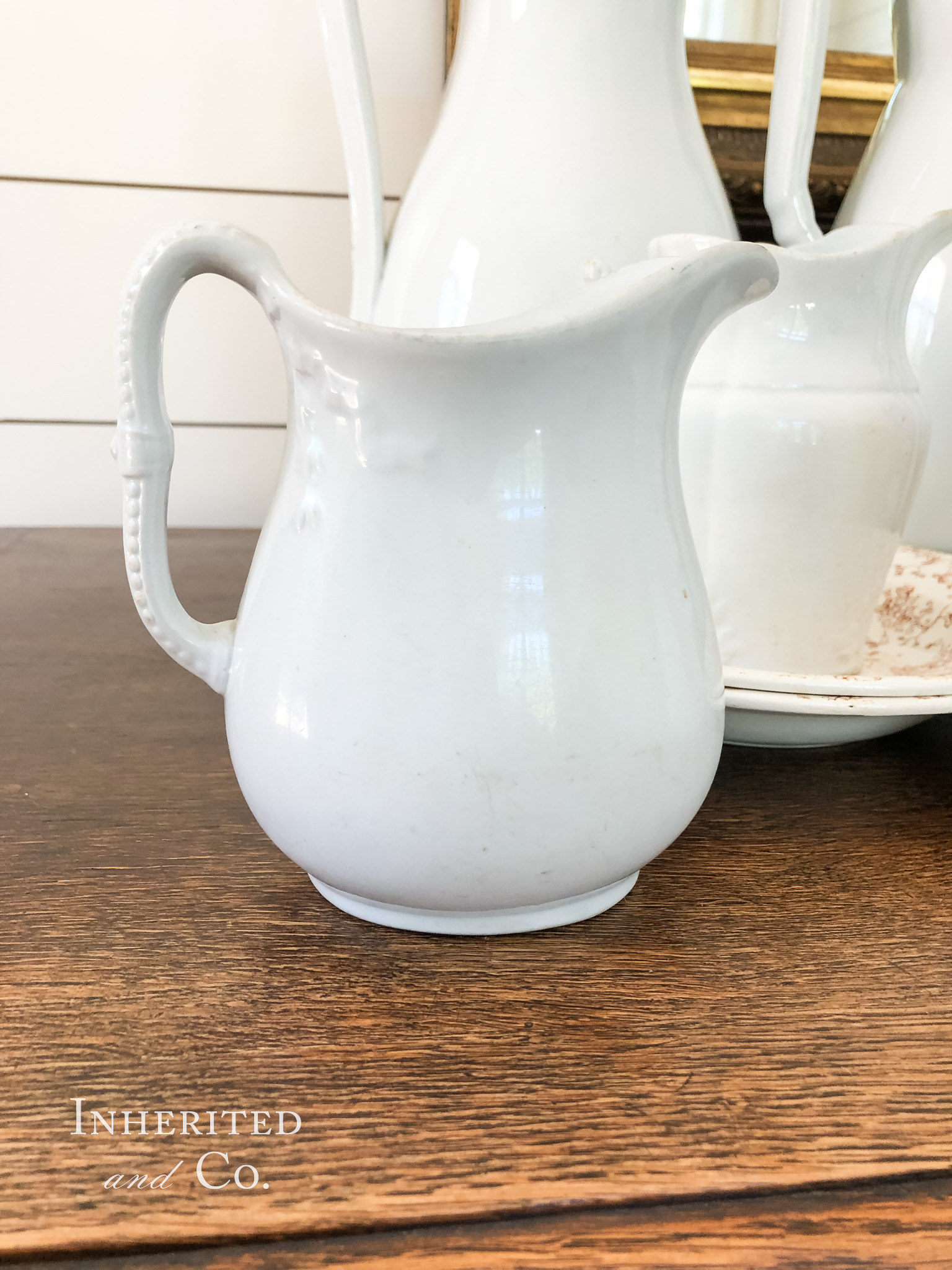
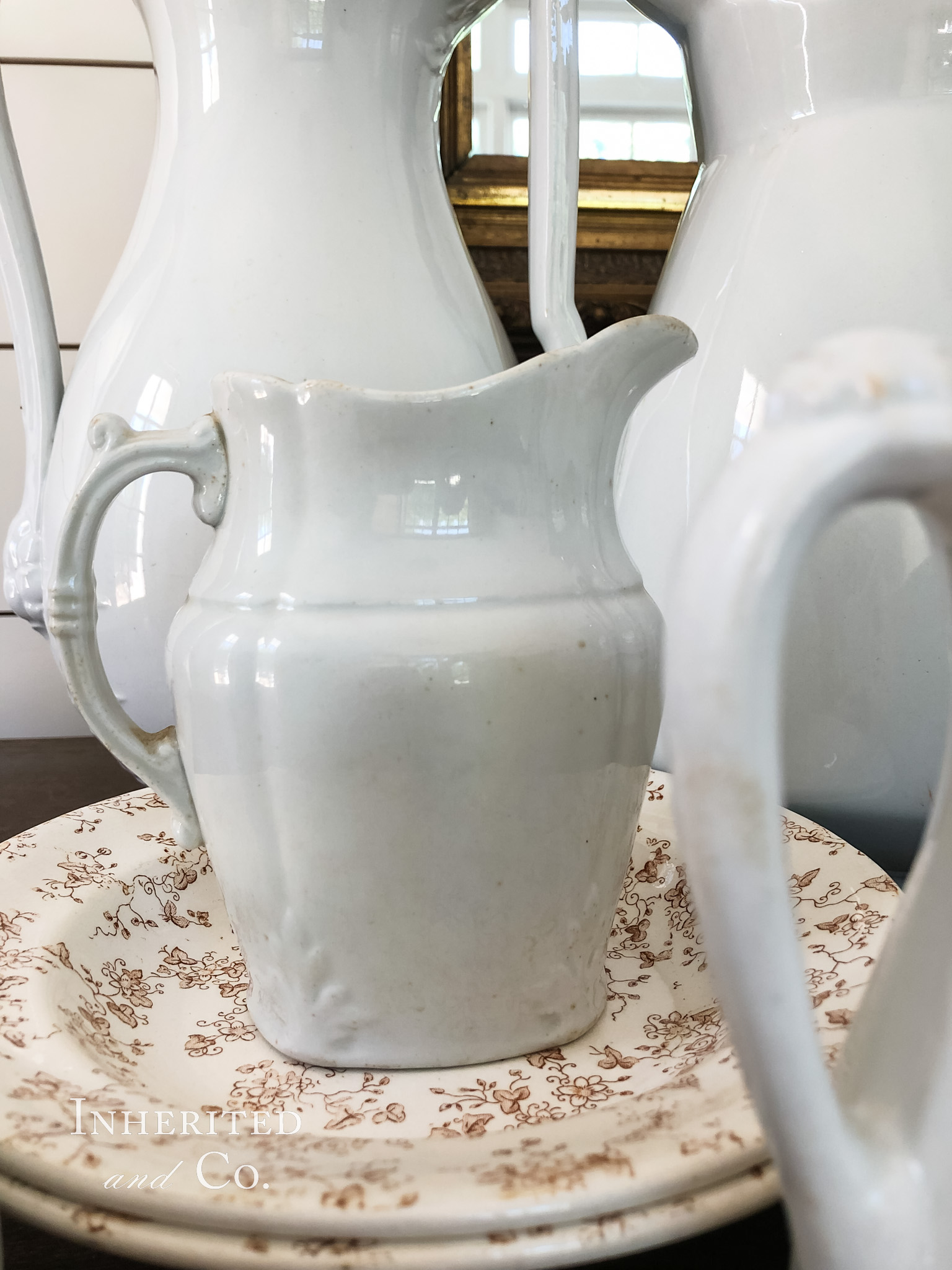
Ironstone Sugar Bowls
Two ironstone sugar bowls with their lids were found in this fourth box. The plainer one is by “Thomas Elsmore & Co.” The other one has a lovely floral finial and feminine curves and lines. It is the St. Louis Shape by the English maker “J. Edwards.”

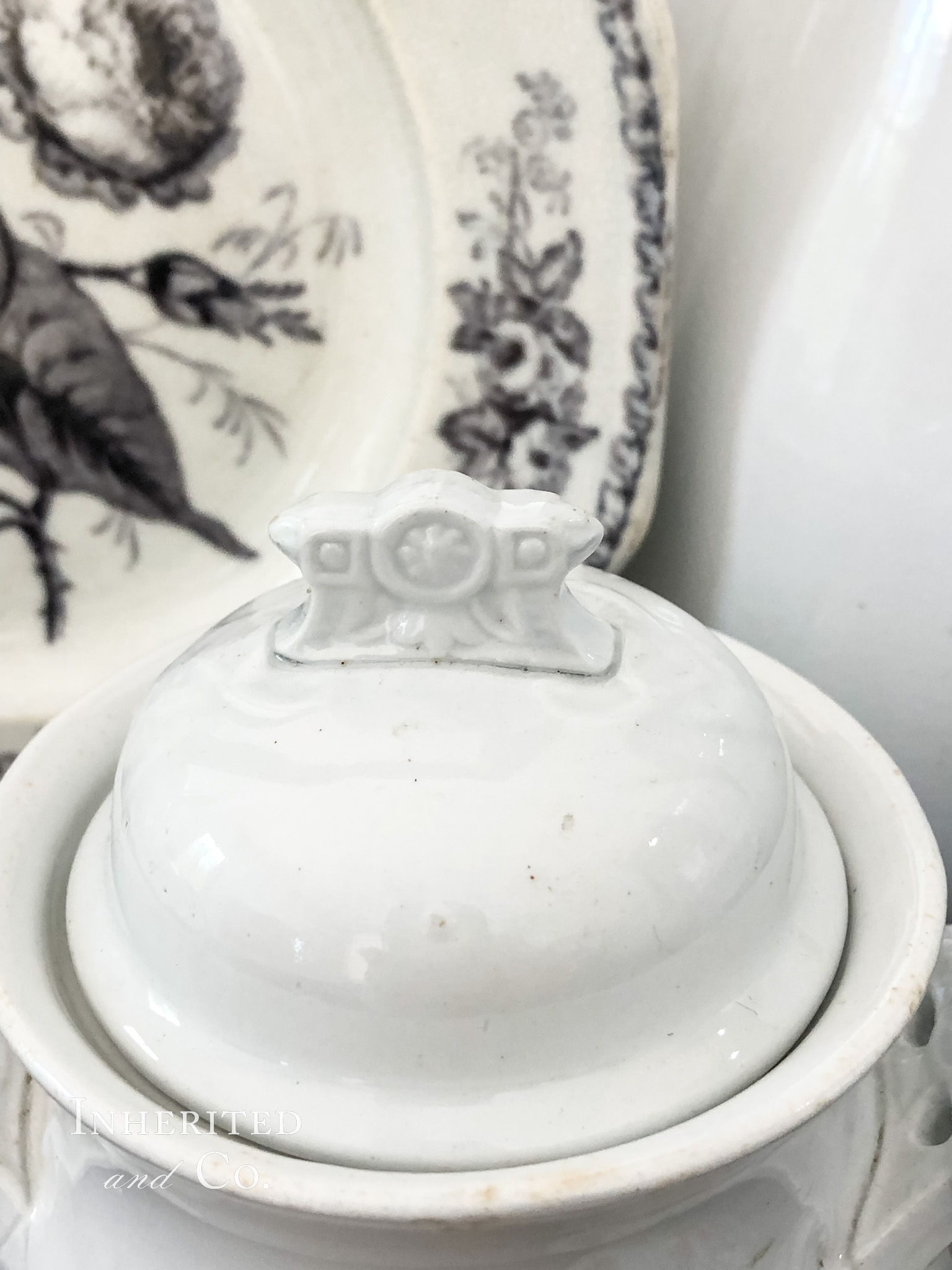

Ironstone Jardinière, Ladles, and a Tureen
The box’s namesake is the one American-made ironstone piece. It is an ironstone jardinière by “K.T. & K.” out of East Liverpool, Ohio. The first English versions of these jardinières were produced in the later 1800s when we began to see plainer ironstone pieces in production. These pieces are harder-to-find, so if you see one out picking, purchase it quickly before another collector does. Unfortunately, this piece has some crazing and a tight, spider crack, but it still maintains a good value.
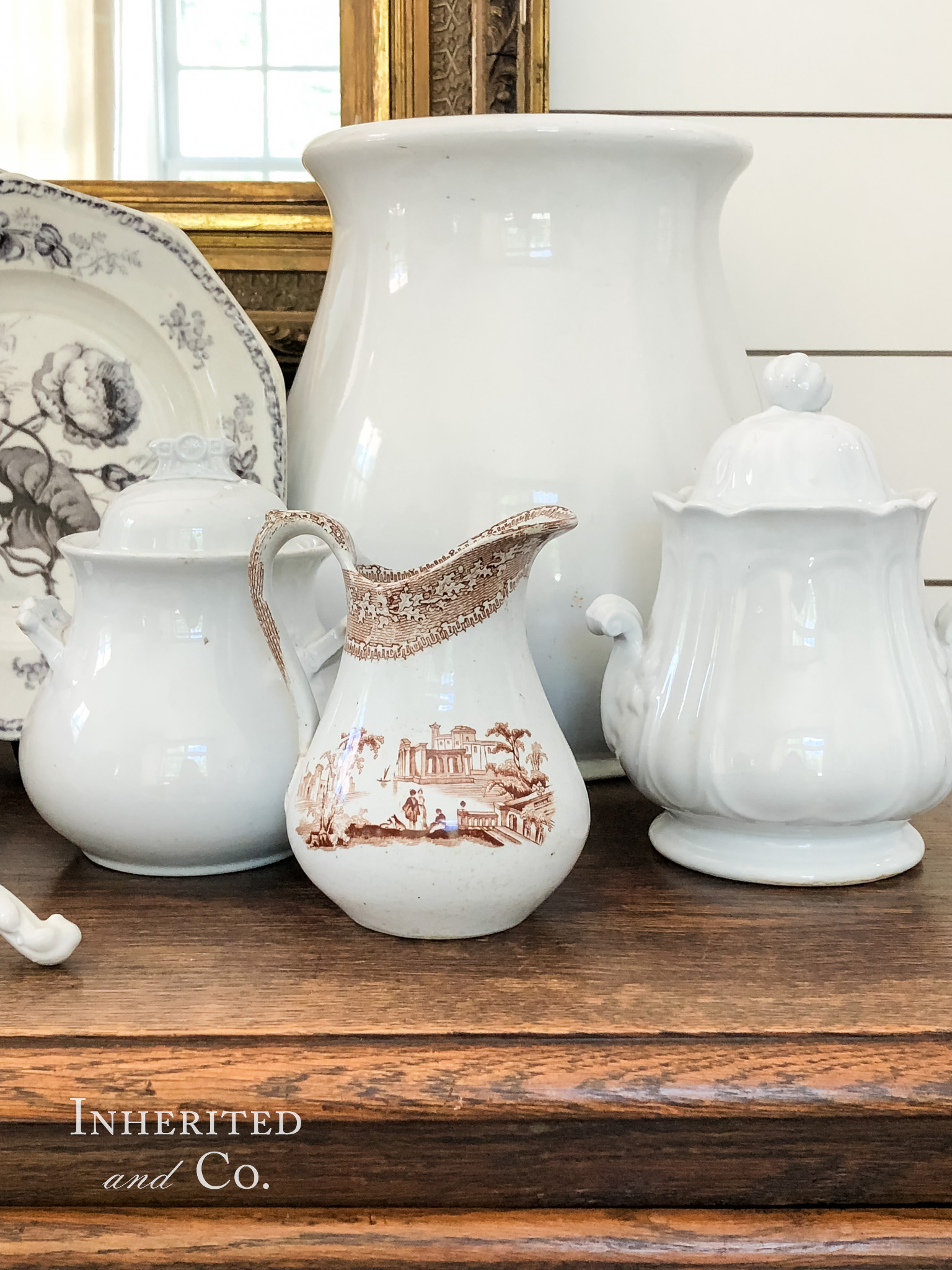
The other equally exciting pieces in this fourth bin are the two ladles. One ladle is a soup ladle—the larger one—while one is a sauce ladle—the smaller one. Ladles would have been used in soup tureens, sauce tureens, and even hot toddy bowls. Again, ladles are not an easy ironstone piece to find.

Speaking of tureens, the lone tureen in this box is made by “Taylor Bros.” These are easy to find ironstone pieces, but if you do not dine formally, do not dismiss these items. Alternative uses for these antique ironstone tureens, as it relates to décor, are to hang these lids on the wall to display the unique finials and let the base hold plants or maybe shelled nuts and a nutcracker.

Mulberry and Brown Transferware
This box contained a little more color than the previous boxes, black and brown to be exact. There were two pieces of mulberry and three pieces of brown transferware.
The two mulberry plates were by “Hulme & Booth” and were in the “Flora” pattern. I adore these! The smaller one is about 9.5 inches in diameter, with the larger being 10.5 inches. If I ever see a pair or a trio of plates in the same pattern that I like while antiquing, I purchase them. A pair can be mixed into a wall décor vignette easily, and a trio can stand alone on a small wall.

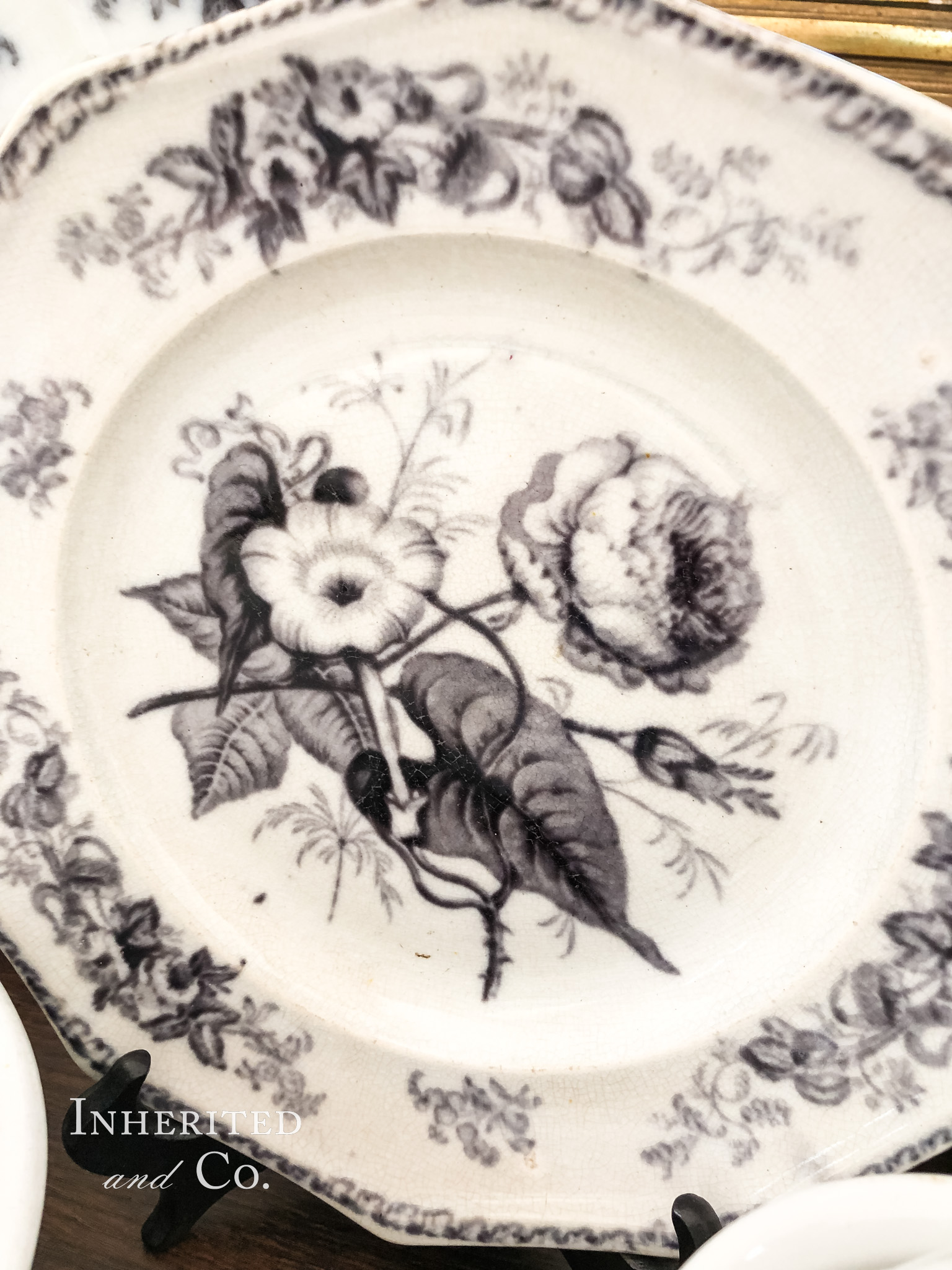
Two of the three pieces of brown transferware look like plates at a glance but are actually soup bowls. Notice the deeper centers. These are made by “C & E” out of Burslem in the “Florian” pattern and measure about 8.5” in diameter.
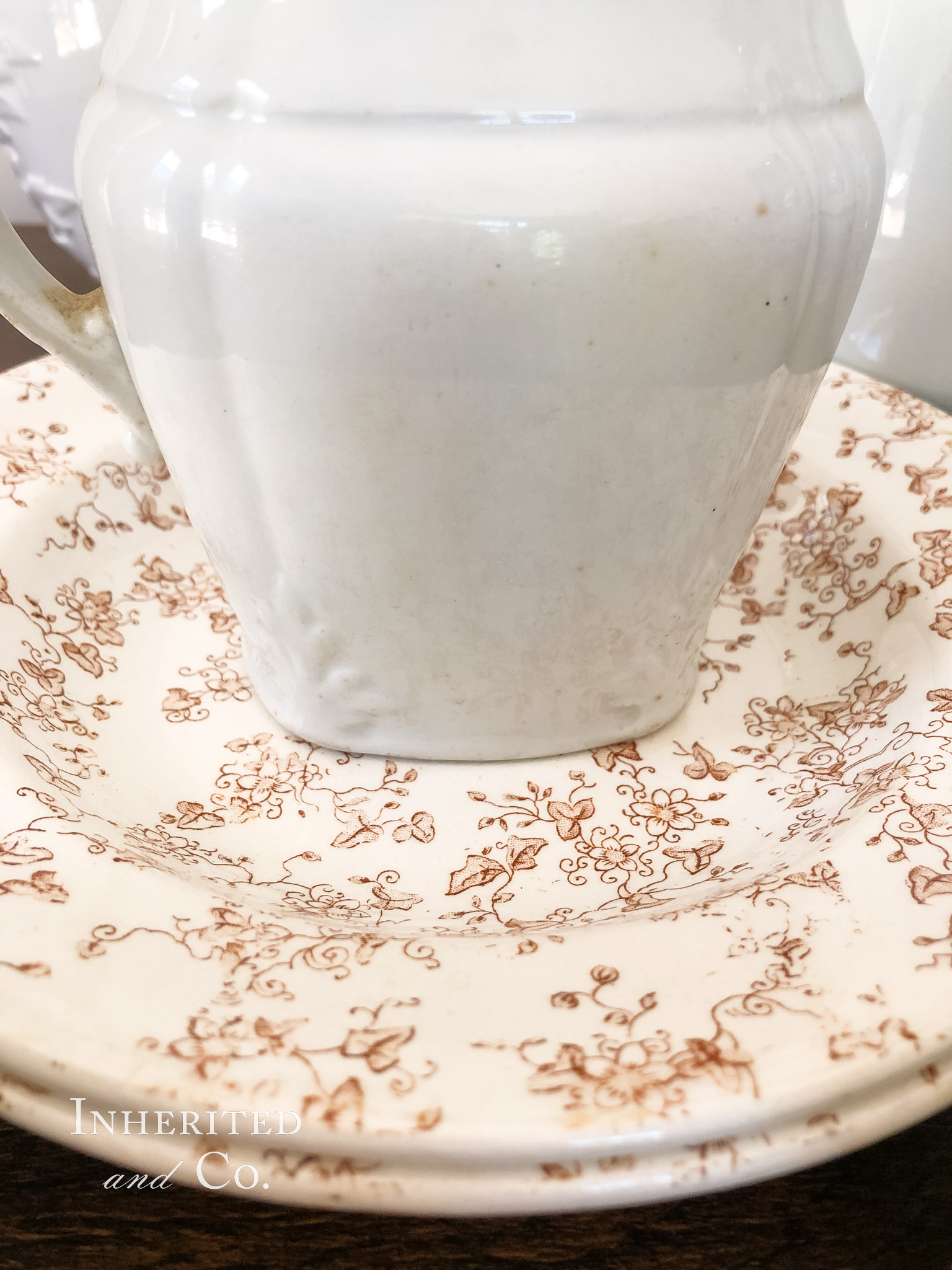
The third piece of brown transferware contained in this box was a 5.5” tall pitcher. It is unmarked. The handle and rim are lined with an almost lace-like pattern overlayed with oak leaves, and the body features three people and two animals near a body of water nestled between two European-style buildings.

Related Posts, Pages, and Sources
- If you are wanting to locate an antique or vintage find like ones I shared in this post, check out these listings for antique ironstone.
- If you are looking for other antiques for your home, check out my Antiques Shop Page.
- If you are looking for more inspiration using antiques in your home, check out these posts:
- If you are wanting to catch up on the entire Ironstone Unboxing of my Old House Bins Series, check out these posts:
-
-
- This Post is Bin #4.
-

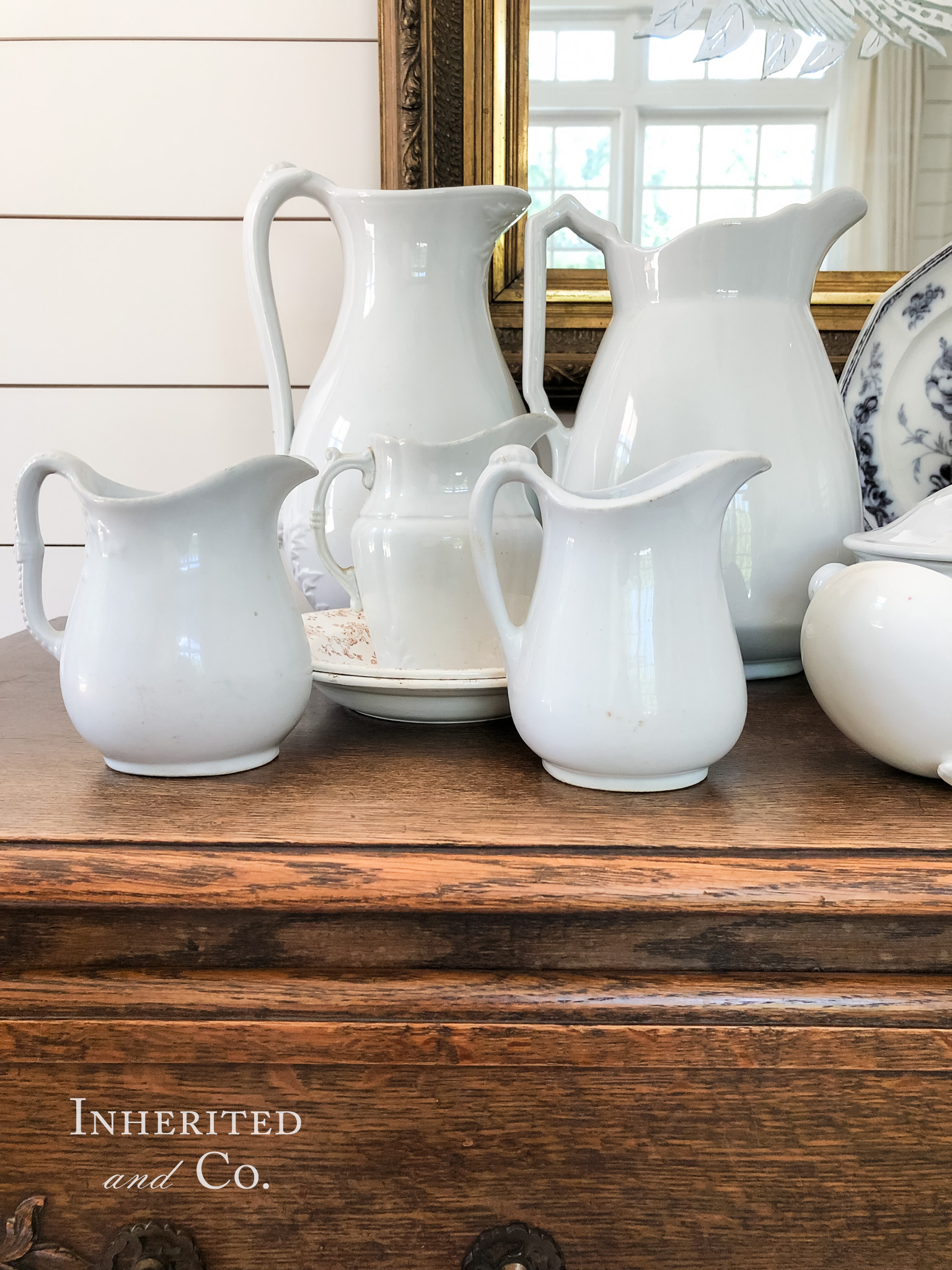
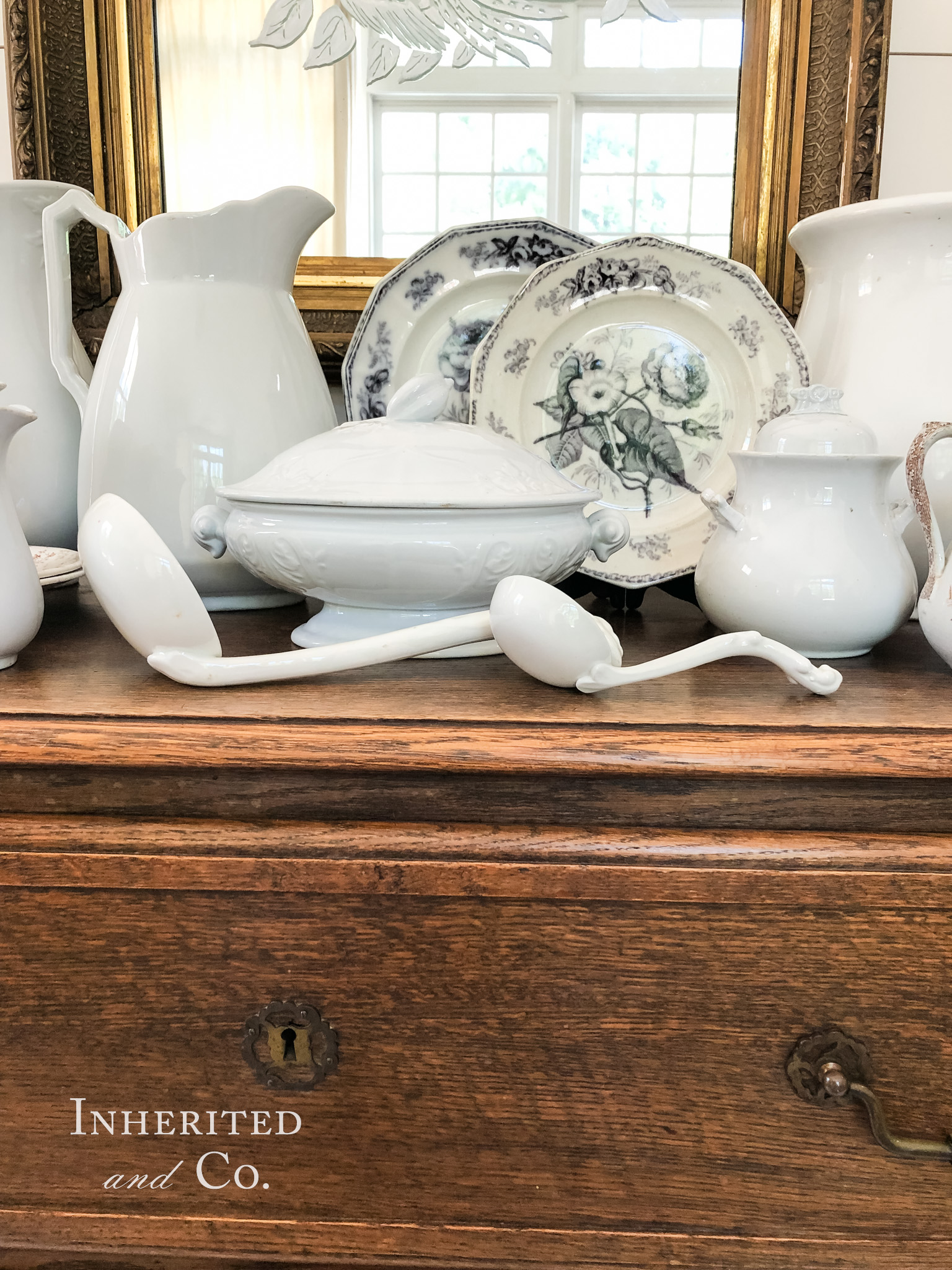
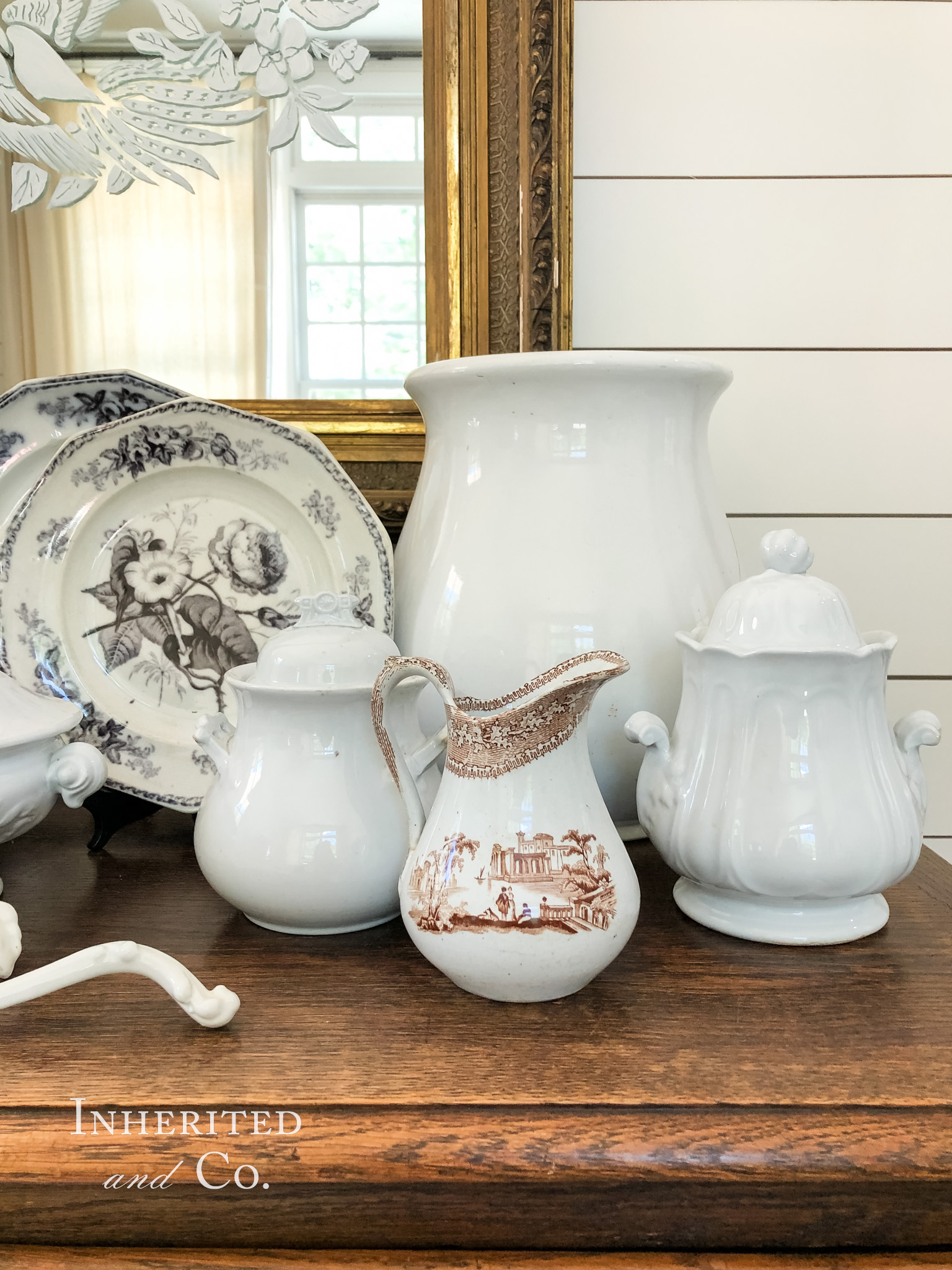

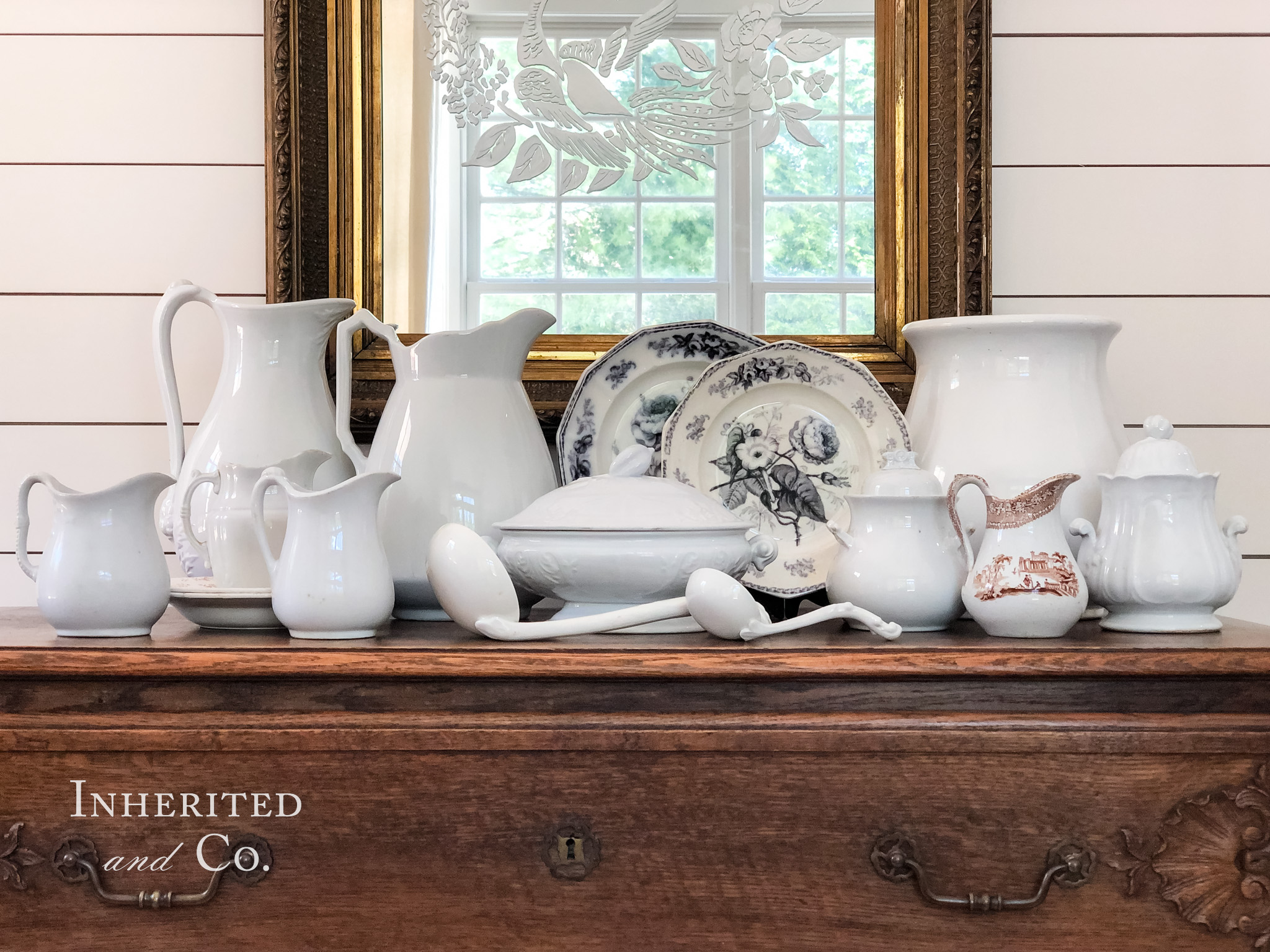
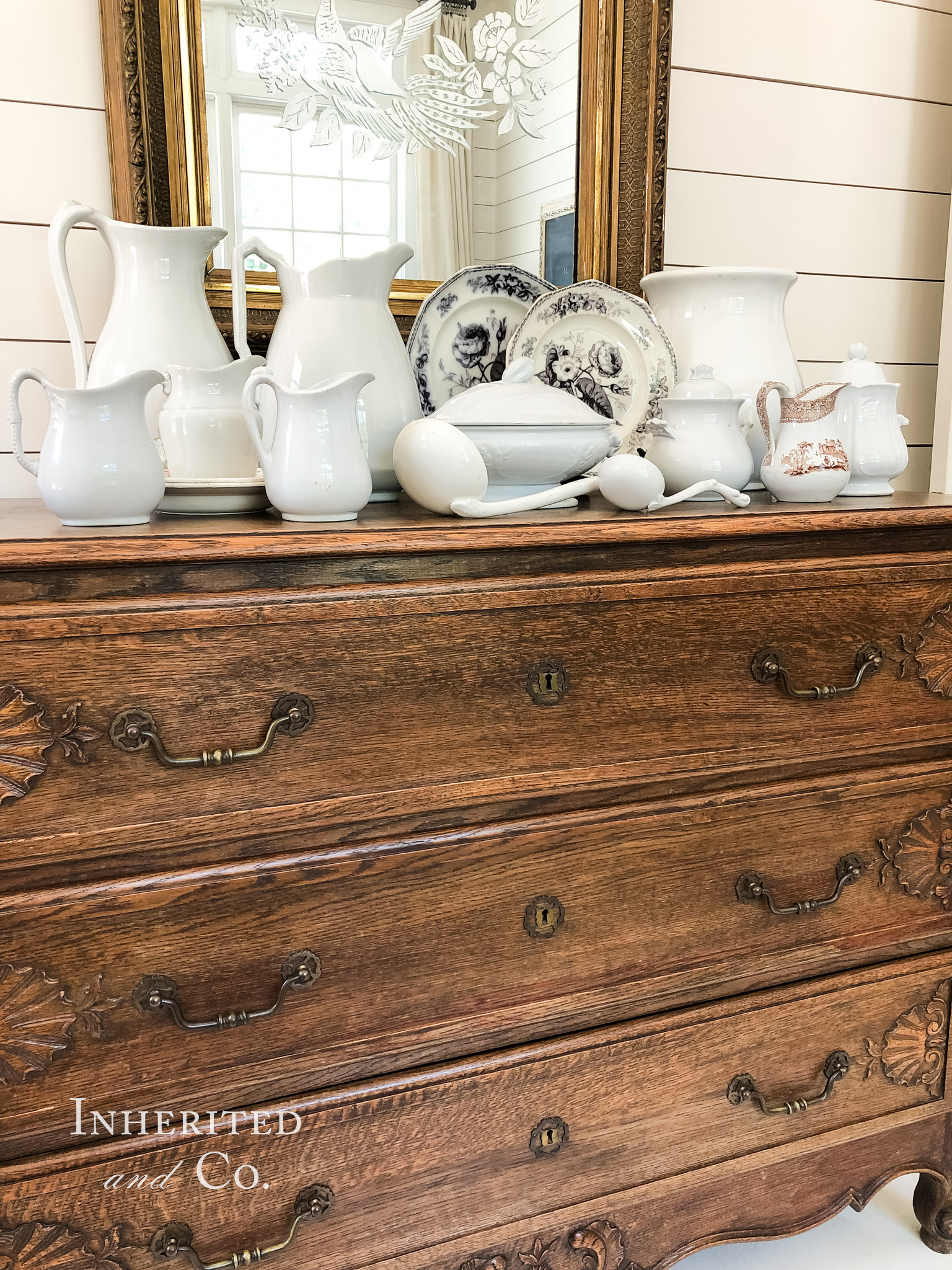
Ironstone Unboxing Blog Series
Four boxes down, twenty-nine to go! Which piece in Bin #4 was your favorite? Was there a new pattern or type of ironstone that you discovered after seeing the contents of this fourth box? I am so excited to be unboxing these old house bins and rediscovering some great ironstone pieces together with you.
If you are inspired to do some ironstone shopping, I would love to see your find. Be sure to tag me @inheritedandco in your photo.
Love unboxing these bins with me? Subscribe to my email newsletter so you don’t miss seeing the next bin.
